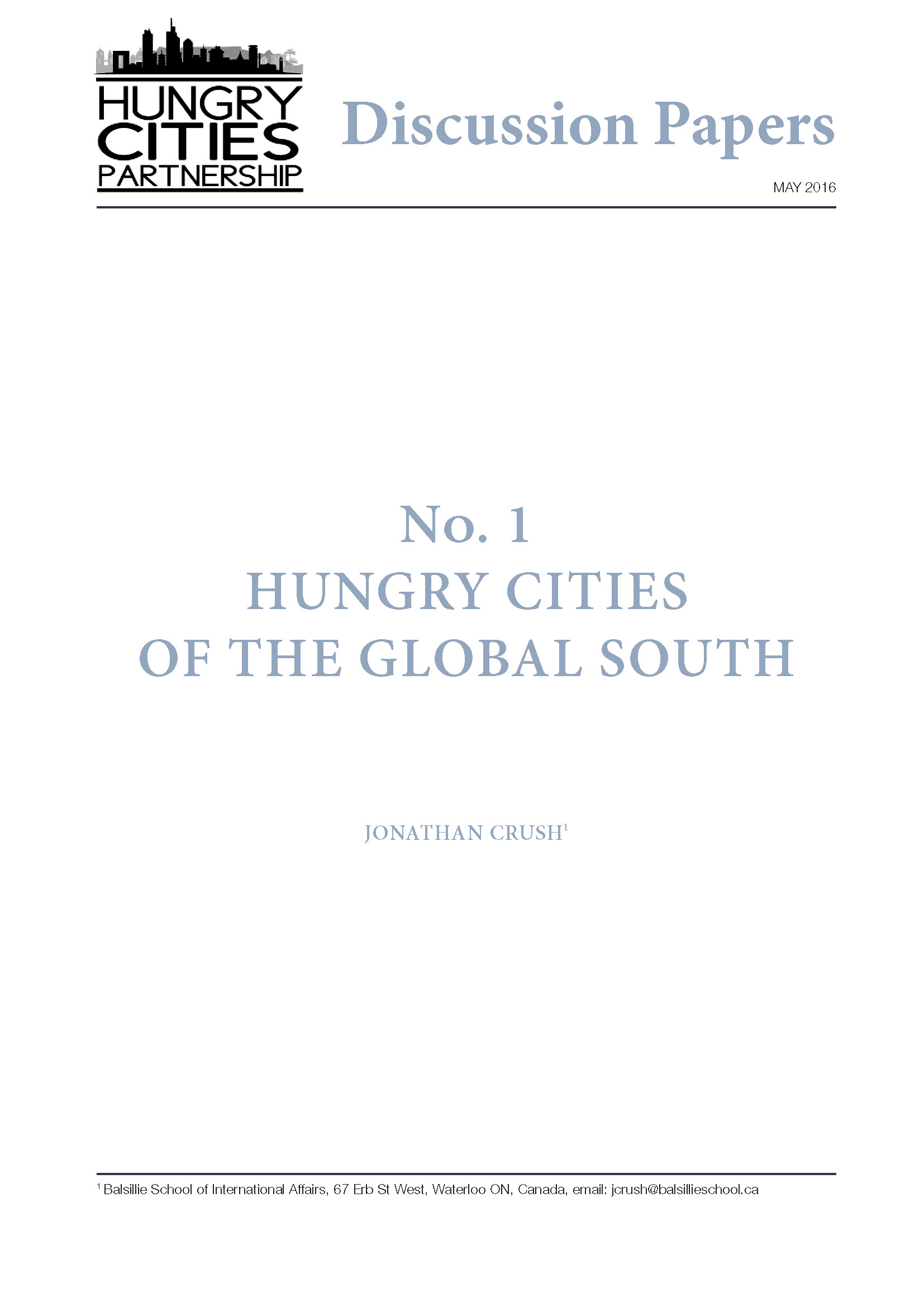The recent inclusion of an urban Sustainable Development Goal in the Post-2015 UN Development Agenda represents an important acknowledgement of the reality of global urbanization and the many social, economic, infrastructural and political challenges posed by the human transition to a predomi- nantly urban world. However, while the SDG provides goals for housing, transportation, land use, cultural heritage and disaster risk prevention, food is not mentioned at all. This discussion paper aims to correct this unfortunate omission by reviewing the current evidence on the challenges of feeding rapidly-growing cities in the Global South. The paper first documents the magnitude of the urban transition and the variety of indicators that have been deployed to measure the extent of food insecurity amongst urban populations. It then looks at the way in which urban food systems are being transformed by the advent of supermarkets (the so-called “supermarket revolution”) and the growth of the informal food economy. The final section of the paper examines the relationship between formal and informal food retail and asks whether the one is undermining the other or whether they co-exist in an uneasy, though symbiotic, relationship. Against this backdrop, the secondary purpose of the paper is to lay out a research agenda which will guide the Hungry Cities Partnership as it attempts to give greater global prominence to the critical but neglected issue of urban food systems and food insecurity.

